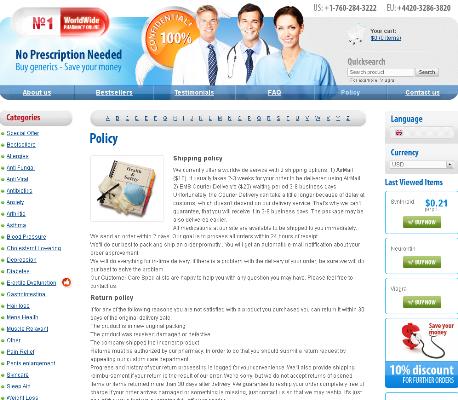| Royal City Drugs |
To Visit Online Pharmacy Click HERE ↓
Lexapro and Alcohol: What You Need to Know
Understanding How Lexapro and Alcohol Affect the Brain
Lexapro, known by its generic name escitalopram, is a selective serotonin reuptake inhibitor (SSRI) used to treat anxiety and depression. It works by boosting serotonin levels in the brain, a key neurotransmitter that regulates mood, sleep, and emotions. Alcohol, on the other hand, is a central nervous system depressant that can lower inhibitions, alter judgment, and affect neurotransmitter activity.
When Lexapro and alcohol are used together, their interactions in the brain can become complex. While Lexapro aims to stabilize mood and emotions, alcohol may counteract this by interfering with serotonin pathways and further depressing the nervous system.
Below is a comparison of how Lexapro and alcohol affect brain chemistry:
| Substance | Main Effect on Brain | Potential Outcome |
|---|---|---|
| Lexapro | Increases serotonin levels | Improved mood, reduced anxiety |
| Alcohol | Suppresses neurotransmitter activity | Impaired judgment, worsened mood |
Even casual drinking can disrupt the careful balance Lexapro tries to create, making it harder to achieve consistent mental health benefits.
The Potential Risks of Mixing Lexapro with Alcohol

Mixing alcohol with lexapro may seem harmless, but the reality is quite different. Alcohol is a central nervous system depressant, and when combined with lexapro, it can intensify feelings of drowsiness, dizziness, or even confusion. Many people discover this only after they’ve experienced unpleasant or unexpected symptoms at gatherings or social events.
Beyond these immediate effects, the combination can also place added strain on your liver, as both substances are processed there. Over time, this could impact liver health. Emotional stability might also be disrupted, reducing lexapro’s ability to help manage depression or anxiety, and potentially leading to worsening mood or increased risk of relapse.
How Alcohol Can Alter Lexapro’s Effectiveness
When considering a night out with friends, many people wonder if a drink or two might interfere with their daily medication. Lexapro is designed to help stabilize mood and manage anxiety or depression, but its effectiveness can be impacted by alcohol. Alcohol is a central nervous system depressant, which can counteract lexapro’s benefits or even intensify symptoms like sadness or anxiety.
Additionally, alcohol can disrupt the brain’s balance of neurotransmitters, making it harder for lexapro to work as intended. This interaction may reduce the medication’s therapeutic impact. Over time, this combination could lead to setbacks in your mental health progress and make recovery more challenging.
Common Side Effects When Combining the Two

When alcohol and Lexapro are combined, some people notice their drowsiness and fatigue become much more pronounced. This heightened sedation can interfere with daily tasks, making it harder to focus or drive safely. Others experience sharper mood swings, ranging from increased anxiety to deepened feelings of sadness, which complicates recovery from depression or anxiety.
Physical symptoms like dizziness, headaches, and nausea are also quite common when mixing the two. Even a small amount of alcohol can intensify Lexapro’s side effects, causing discomfort. Some individuals report trouble with coordination or blurred vision, which could lead to accidents or falls in more severe cases.
Additionally, both substances can impact your sleep. Instead of restful slumber, you might wake frequently throughout the night or struggle to fall asleep at all. Over time, this sleep disruption worsens mental health symptoms and contributes to overall fatigue.
It’s also worth noting that gastrointestinal distress—such as stomach pain or diarrhea—may become more frequent or intense with this combination. While not everyone will experience all of these effects, it’s important to be aware that risks increase when Lexapro and alcohol are used together, highlighting the need for caution.
Myths and Misconceptions about Lexapro and Alcohol
Some people believe that taking Lexapro and having an occasional drink is harmless, but this isn’t always true. In reality, even small amounts of alcohol can interact with Lexapro in unpredictable ways. Another common misconception is that alcohol can “cancel out” Lexapro’s benefits, but the impact can differ from person to person. Some think that skipping a dose before drinking is a safe workaround, but this can disrupt your treatment. Understanding the facts helps you make better choices.
| Myth | Reality |
|---|---|
| Alcohol always has the same effect with Lexapro | Reactions vary from person to person |
| Skipping a dose prevents interactions | Missing doses may harm treatment progress |
Tips for Safer Choices If You’re Taking Lexapro
When you’re prescribed Lexapro, navigating social events where alcohol is present can feel tricky. While one drink might not seem harmful, remember that interactions between antidepressants and alcohol can be subtle yet significant. Planning ahead—such as having a non-alcoholic option in hand—can help you avoid peer pressure and keep your boundaries clear.
Open communication with your healthcare provider is crucial. Don’t hesitate to ask them specific questions about alcohol use, as individual responses to Lexapro can vary widely. They may suggest ways to stay mindful of your mental health, recommend check-ins, or adjust your dosing schedule if needed.
It’s also wise to pay close attention to how your body and mood respond when you do drink, even in small amounts. Some people may notice increased dizziness, sleepiness, or a dip in mood soon after drinking, which is a clear sign to reevaluate habits.
Above all, prioritize self-care and self-awareness during your treatment. Opting for alcohol-free gatherings, practicing mindfulness, and building a strong support system can make your experience with Lexapro safer and more rewarding in the long run.






Email Us
Fill out all the fields below and press submit, a rep will contact you as soon as possible.

